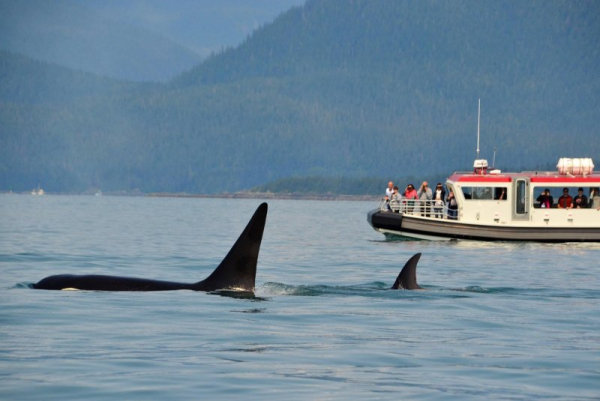
Orcas can be playful, but sometimes they will ram vessels and create a hazardous situation. Photo by wolfganglucht/Pixabay
Rescuers saved two crew members from a sinking sailing yacht after an orca pod attacked it off the Strait of Gibraltar in Moroccan waters.
The 49-foot sailing yacht Alboran Cognac encountered the pod containing an unknown number of killer whales about 9 a.m. local time Sunday, according to Spain’s maritime rescue service. Advertisement
The whales continuously rammed the vessel’s hull and rudder, which caused it to leak and slowly sink.
The sailing yacht was situated about 14 miles from the coast of Cape Spartel when the killer whales repeatedly struck it.
The vessel’s two crew members alerted the rescue service, and a passing oil tanker rescued them while leaving the yacht adrift until it eventually sank, the BBC reported.
The attack by the killer whales repeats a pattern of vessel attacks and sinkings that have increased during the past four years near the Strait of Gibraltar, which separates Europe from North Africa and connects the Alboran Sea with the Atlantic Ocean.
Scientists are unsure why the orca pods are attacking vessels, but they caution sailors in vessels vulnerable to such attacks to avoid areas where orcas are known to roam. Advertisement
Some scientists say the “attacks” likely are just playful orcas interacting with the vessels as they pass through and intend no harm.
The orca encounters are more likely between May and August, when Orca pods are more active in the area.
Incidents also have happened outside of those months.
An orca pod continually slammed into the steering fin of a Polish vessel for about 45 minutes before sinking it in October.
An orca pod also bumped into two sailing teams during an around-the-world sailing race in June, but didn’t sink either vessel.
No one has been injured during such orca encounters, but they remain potentially dangerous and costly to vessel owners.
About 300 vessels pass through the Strait of Gibraltar every day, which makes it one of the world’s busiest sea lanes.